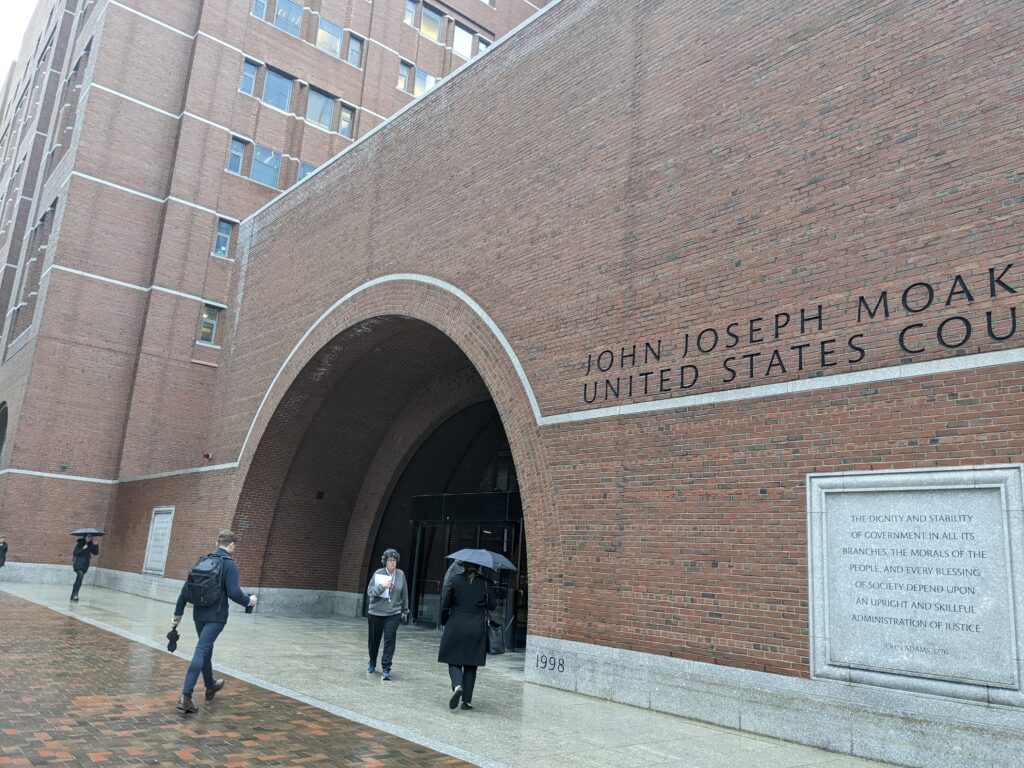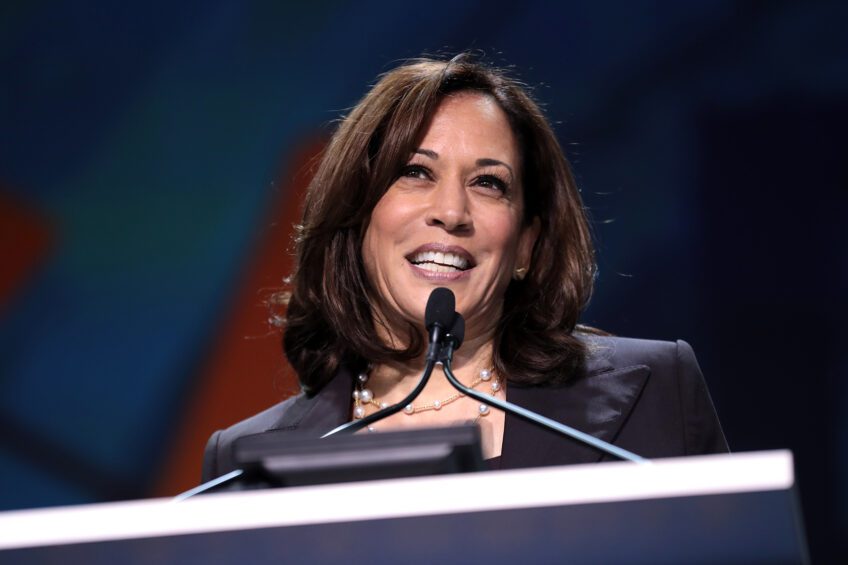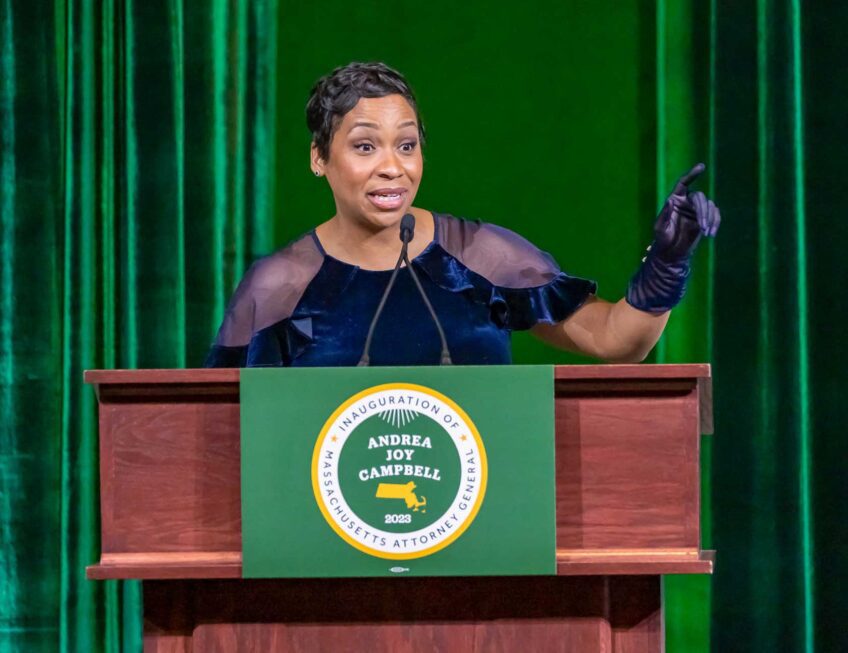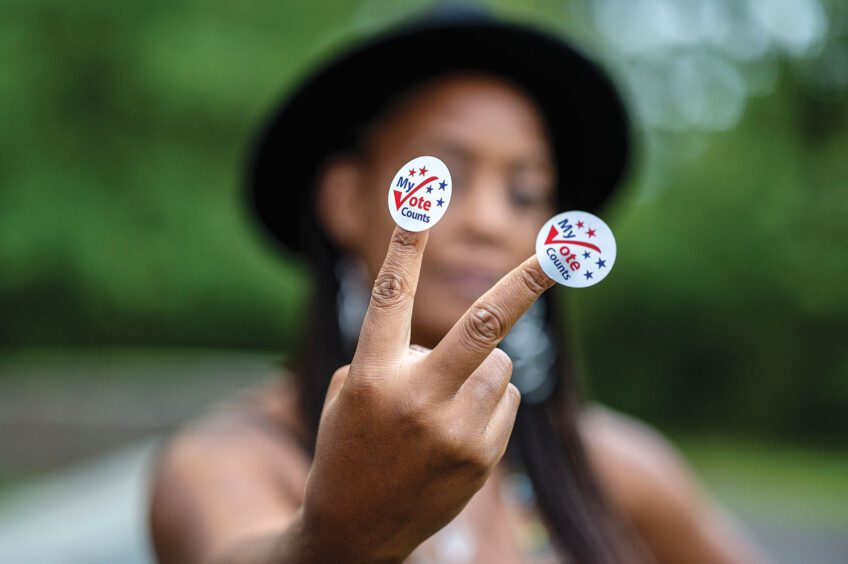City, plaintiffs square off in redistricting hearing
Flaherty is first witness to take the stand

By introducing racial considerations, Boston City Council members deviated from their mandate to redraw district lines, at-large Councilor Michael Flaherty argued on Tuesday, taking the stand on behalf of the plaintiffs in a lawsuit seeking to overturn the body’s 2022 redistricting process.
Flaherty was the first witness testifying on behalf of the plaintiffs, who allege the restricting map passed by the City Council last year is illegal because it violated the federal Voting Rights Act, and who also allege that councilors violated state open-meeting laws.
On the stand, Flaherty testified that the Council’s first working session produced a “base-line” map that largely solved the main problem of an influx of residents to Council President Ed Flynn’s South Boston-based District 2 — without having to delve into other changes the Council ultimately endorsed, including moving precincts between the city’s 3rd and 4th Districts in Dorchester.
“No one needed to do anything to District 4, period.” Flaherty stated.
Instead, he said, “It became less about population and more about racial balancing. That’s not what we’re charged with doing -— we’re charged with balancing population … not packing, not diluting” by race, Flaherty said.
Flaherty’s testimony underscored the main line of attack the plaintiffs’ attorneys appear to be taking — arguing that councilors took race into account when drawing district lines.
“The primary objective the City Council had to take up was population balancing,” argued Frederick Dashiell, attorney for the plaintiffs.
To that end, Dashiell argued, the City Council’s job had been relatively simple.
“In fact, they were able to pretty quickly comply with the requirement that was the only objective they had to address … Everything that was done after that was actually racial balancing and unnecessary,” Dashiell said, adding, “The law does not allow the use of race to achieve a municipal or state obligation.”
In opening remarks, Jennifer Grace Miller, attorney for the city of Boston, countered that City Council members simply did their job.
“This case is ultimately about choices,” said Miller, arguing that Council members focused primarily on the principle of ‘core retention,’ or keeping historic districts intact.
The map ultimately approved by the City Council “focused on core retention almost to the exclusion of everything else … nonetheless, the plaintiffs have sued.”
In cross examination, defense attorney Lon Povich challenged Flaherty’s characterizations that the final map had torn communities apart, or that the early “baseline” map had in fact been viable, eliciting Flaherty’s acknowledgment that the early map had not fully solved the problem of population distribution.
“Once you start redistricting, everything is in play?” asked Povich.
“Yes,” answered Flaherty.
Asked whether an expert the Council had retained had flagged any problems with the final map, Flaherty admitted he was aware of no such objections.
Attorney Povich also challenged the idea that Council members had violated the state’s open meetings law, pointing out the plaintiff’s sole witness so far, Flaherty, did not attend two of three meetings being challenged and could not testify to them; and suggesting the third, an emergency meeting held at the James F. Condon school, in South Boston, was not a formal City Council meeting, though councilors were present.
On the stand, Flaherty repeatedly criticized by name City Councilor Ricardo Arroyo, who chaired the Council committee overseeing redistricting until he was removed from that post by Council President Ed Flynn. Flaherty accused Arroyo of having failed to hold more redistricting meetings sooner and of leading the effort to redraw more districts than necessary.
Following Tuesday’s hearing, Arroyo countered that the plaintiff’s opening case showed “plainly just how frivolous this case is.”
“I think it’s telling that not a single expert is on the [plaintiffs’] witness list,” Arroyo said.
The sole witness expected to be called by the city’s attorneys — Tufts University mathematician and redistricting expert Moon Duchin — will likely elucidate the city’s defense. During the council’s redistricting hearings, Duchin counseled the body to take into account communities of interest — populations that vote similarly — rather than race while re-drawing lines.
In documents filed before Tuesday’s hearing began, the city’s defense appeared to revolve around two of the plaintiffs’ main allegations in their amended complaint. The first is that the Council violated Section 203 of the Voting Rights Act (VRA), which requires municipalities, counties or states to provide voting materials to language minority groups.
Attorneys for the city have argued that “the Second Amended Complaint contains minimal specific allegations as to how the City allegedly violated Section 203, misconstrues the applicability of Section 203 to non-voting materials, and incorrectly states the languages to which the City is required to translate such voting materials.”
The plaintiffs’ argument on Section 203 violations appears to hinge on a written complaint the organization South Boston En Accion wrote to Redistricting Committee Chair Liz Breadon stating that “language access has not been a priority” during Council hearings.
Attorneys for the city argued that Council hearings do not constitute “voting materials” under the VRA.
“Moreover, the letter does not complain that Spanish-speaking residents were deprived of an opportunity to weigh in on the redistricting process, let alone the opportunity to register or vote,” the city’s attorneys wrote.
The second main allegation the city is challenging is lead plaintiff Rasheed Walters’ claim that “the redistricting map violates his voting rights and the City Charter by gerrymandering District 4 so it is no longer a majority black seat,” and “that this forced gentrification of District 4 may result in the black voters of District 4 never being represented by an African American again.”
Attorneys for the city argue that Black voters in the district continue to vastly outnumber white voters, making up 51.1% of the population in District 4, down half-a-percent from 51.6% prior to redistricting. White voters are now 15.4% of District 4, up from about 8% before.
“Black voters maintain the ability to ‘handily’ elect the candidate of their choice under the 2022 Plan,” the attorneys wrote.
Others scheduled to testify on behalf of the plaintiffs include U.S. Rep. Stephen Lynch, state Sen. Nick Collins, Boston City Councilor Edward Flynn, former City Councilor Maureen Feeney, District 4 resident Rasheed Walters and District 2 resident Eleanor Kasper.
Duchin is the sole witness testifying on behalf of the defense.
Yawu Miller contributed to this story.






